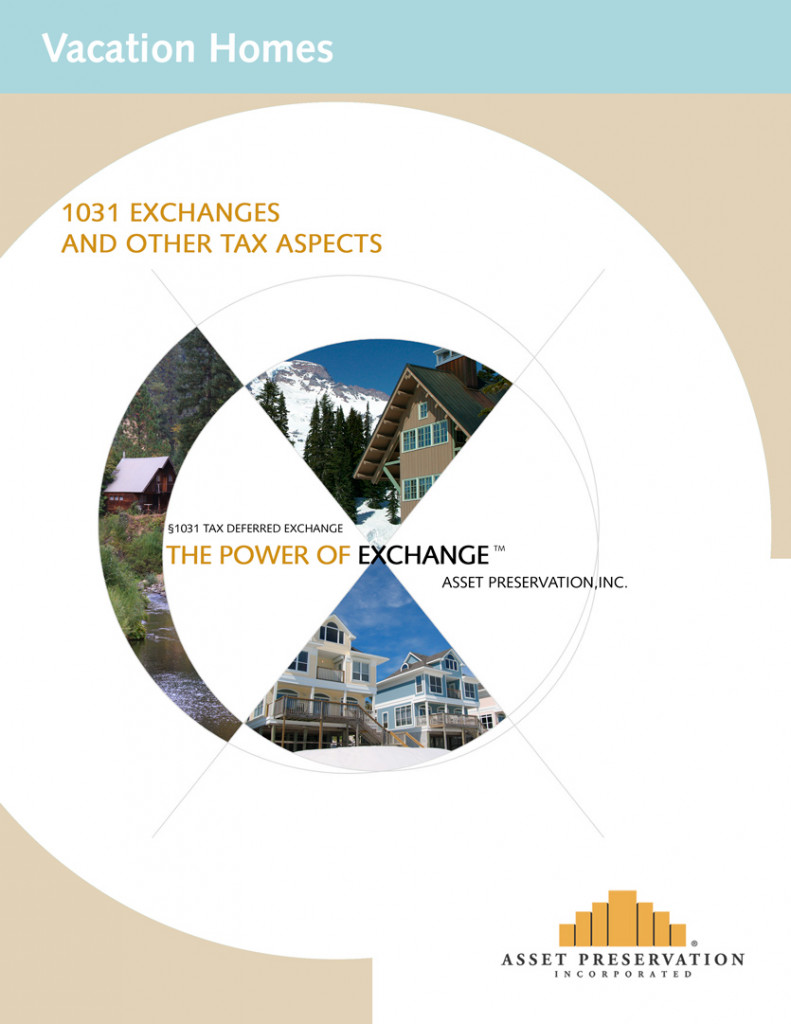Real estate in resort or vacation destinations can produce diverse and significant tax consequences. These tax consequences can be particularly critical at the time a property is sold, since many vacation destinations have appreciated significantly and property owners may be facing significant capital gain tax consequences upon disposition. The use of a tax deferred exchange under IRC Section 1031 can be particularly important in disposing of such property.
This publication will first address the use of Section 1031 tax deferred exchanges in disposing of vacation properties. It will then consider a number of different scenarios, and the tax consequences of each, both while the property is owned and upon disposition of the property. Last, it concludes with a few words about converting a vacation property into an investment property eligible for Section 1031.

1031 Exchange Webinars
Monday, December 19th
10:00 AM – 11:00 AM CT
CPE Credit Available
This one-hour intermediate/advanced webinar provides a concise and thorough overview of 1031 exchanges for accountants, CPAs, and tax advisors. This webinar covers critical time deadlines, like-kind requirements, fractional ownership, oil/gas/mineral rights, related party transactions, partnership/LLC scenarios, reverse and improvement exchanges, and how to avoid common pitfalls.
Thursday, December 1st
12:00 PM – 2:00 PM CT
CLE/CPE Available
This two-hour course for commercial brokers provides a concise and thorough overview of IRC Section 1031 tax-deferred exchanges. This webinar tackles advanced issues such as partnership/LLC scenarios, creative property variations such as perpetual cellular easements (cell towers), fractional ownership, transferable development rights, reverse and improvement exchanges, and how to avoid common pitfalls and related-party transactions.

We Love Our Happy Customers
Our exchange paperwork was flawless and always on time. Thank you.
-William T., California
1031 Basics: IRS Form 8824 Like-Kind Exchanges

The tax filing date for many taxpayers is just around the corner. The Internal Revenue Service Form 8824, Like-Kind Exchanges, must be completed and filed with the IRS every time a taxpayer performs a 1031 exchange. The IRS Form 8824 contains three sections related to a 1031 exchange:
- Part 1, Information on the Like-Kind Exchange;
- Part II, Related Party Exchange Information; and
- Part III, Realized Gain or (Loss), Recognized Gain, and Basis of Like-Kind Property Received.

Federally Declared Disaster Extension Information
Click the link below to determine if you may qualify for an extension.
https://www.irs.gov/newsroom/tax-relief-in-disaster-situations
Additional information here: https://apiexchange.com/disaster-relief/

Call Us
Asset Preservation would appreciate the opportunity to work with you on your next 1031 exchange. Give us a call for a free consultation.
Shared Equity Financing
The purchase of an undivided interest in investment property with a third party, including a child or other family member, who will occupy the property as their principal residence (referred to as the “occupying-co-owner”) can qualify as replacement property under IRC Section 1031, and the investor-co-owner can receive rental income and depreciation benefits, provided the arrangement meets certain criteria in a written “shared equity financing agreement.”

